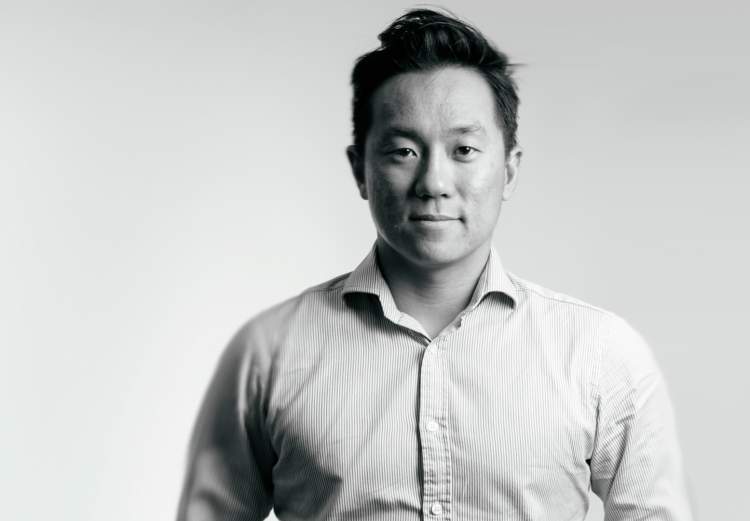This article is part of Tech in Asia’s partnership with The Jay Kim Show where we publish the revised transcripts from the show’s podcast interviews with top entrepreneurs. This is heavily revised from the original show transcripts. For the full interview, go here.

Mark Koh, CEO and co-founder of Supahands
Mark Koh is the co-founder and CEO of Supahands, a platform that helps companies with tedious and repetitive business processes, especially data work. Based in Malaysia, they curate their workforce (called “SupaAgents”) across Southeast Asia to assist with tasks such as database management, content moderation, and image annotation.
In this interview, Koh talks about how Supahands works and his experience in Alibaba’s eFounders Fellowship.
Tell us about your background
I was born in Malaysia but I grew up in Australia, where I went to school and worked in banking. Then, I decided to move back to Southeast Asia because it was becoming a pretty interesting space. Things were starting to boom, the market was starting to heat up, and tech was becoming more interesting in the region.
At first, I set up an ecommerce business, a streetwear company, doing retail clothing and a whole bunch of other things. After a few more years, I decided to set up a call center. Partway through the business, I realized that there must be a better way to build an outsourcing company or something that’s a lot more scalable and doesn’t have the capital intensity and high attrition rate of humans sitting behind a desk.
So, we decided to crowdsource our workforce and find people who could work remotely. We shut down the call center and set up Supahands three and a half years ago.
I don’t have a tech background. So essentially, we just put a bunch of friends together who are in tech, consulting, etc. to build the team.
We wanted to move away from calls and focus on data, anything that can be worked on virtually. We wanted to empower people who could work from home.
Tell us about what you do for companies
We help companies clean data points, train data for machine learning applications, and annotate data for images, audio, and video.
Let’s say an ecommerce company comes to us. What we do is we make sure that the tags they have on the products match the front-end of their website. For example, the images of smartphones that the merchants upload on their platform have to match with the right description or set of features.
Tell us about SupaAgents
The SupaAgents don’t work for us directly. They can come and go whenever they need to. We curate the workforce, and that’s a key USP that we have compared to a lot of other guys in the space. So basically, we’re the tech in the middle. We’re an asset-light business.
How do you do quality control for the agents?
We built multiple models to help us do that. It’s the technology that we have that helps us efficiently curate agents and check the quality of work. We also put the agents through different tests.
Our technology also helps us match the right job with the right agent. We have historical data on all our agents, so we know who is good at doing which particular type of work.
How do you stack up against your competitors?
We have quite a few competitors from the US, Europe, and India. But I believe that each of us has our own USPs, each one has a different specialization.
For us, although our clients are based all over the world, a lot of them are from Southeast Asia. Our workforce is also primarily from this region. I think what we offer is cultural understanding, especially in terms of the various languages used. The community here is very diverse.
What are your plans for this year?
We’re trying to scale the workforce across Southeast Asia, including a wider range of languages, cultures, nationalities, and skills. We are also trying to solidify our position in the region or even Asia Pacific as we start to expand to India or China, and also the US for partnerships.
What did you learn from the Alibaba eFounders Fellowship?
We weren’t sure what to expect. It was a two-week program, and each day, we had classes that ran from early in the morning until late in the evening. We spoke to directors of different business units, managers, operational guys, etc. It was a full immersion into the Alibaba culture and ecosystem.
What I found most interesting was the culture and the value system that they focus on. It made me think about how I could improve the culture within our own business. I think that’s something that a lot of us founders take for granted in the early days because we focus on building the business itself. Looking back, I realized we should have focused a lot more on the culture and value system.
Alibaba was first a B2B business, and as they grew, they launched a C2C business called Taobao. B2B and C2C are extremely different. So, they taught people at Alibaba to think in an opposite way. They got them to stand upside down or do handstands in the office, which people were able to use for having a different point of view in life. I found that really interesting.
What’s your advice for aspiring entrepreneurs?
I think adaptability is key at this time in our lives. Things are changing so quickly, new technologies are coming, and you need to adapt to what’s going on in the market. You need to know what’s going on in the West and how you can use that in the East.

